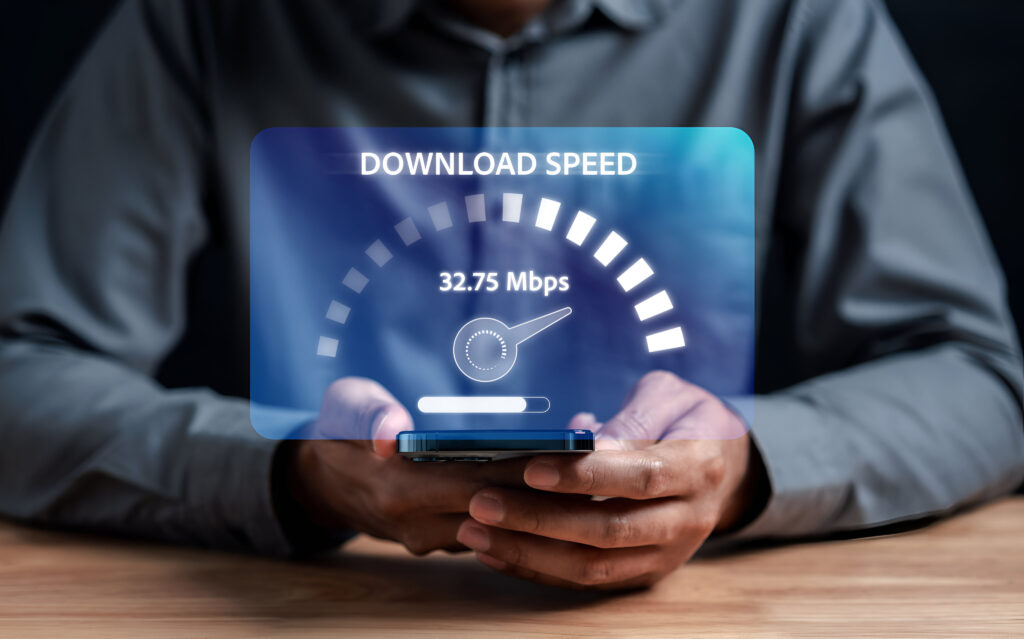Having a robust internet connection is essential. Users often come across two critical metrics when evaluating network performance: download speed and upload speed. Understanding the fundamental difference between download and upload speed can streamline your web interactions, leading to a more efficient and enjoyable experience online.
Download Speed: Your Gateway to Consuming Content
What is Download Speed?
Download speed refers to the rate at which data is transferred from the internet to your device. It is typically measured in megabits per second (Mbps). This metric is crucial for activities like streaming videos, downloading files, and browsing websites. The higher the download speed, the quicker these tasks can be accomplished.

Why is Download Speed Important?
Download speed plays a significant role in the following:
- Streaming Services: Fast download speeds ensure seamless video streaming without buffering.
- File Downloads: Larger files, such as software updates or high-resolution images, download more quickly.
- Web Browsing: Quick access to web pages enhances user experience.
Upload Speed: Sharing Your Content Efficiently
What is Upload Speed?
Upload speed is the rate at which data is transferred from your device to the internet. Like download speed, it is also measured in megabits per second (Mbps). Upload speed is crucial for activities like sending emails, video conferencing, and uploading files to cloud storage.
Why is Upload Speed Slower Than Download Speed?
Internet service providers (ISPs) often design networks to prioritize download speed over upload speed. This is because most users consume more content than they share. In technical terms, it's easier to handle increased download demands on a network compared to upload, which can congest the server paths more quickly.
Is Upload Speed Important?
Though often slower, upload speed is critical for:
- Video Conferencing: Smooth video quality relies on sufficient upload speed to transmit your video feed effectively.
- Cloud Storage: Uploading files to the cloud for backup or file sharing requires reliable upload speed.
- Online Gaming: Multiplayer gaming demands good upload speeds for sending real-time data to the server.
Key Differences Summarized
1. Purpose:
- Download Speed: More critical for consuming content (e.g., streaming movies, browsing websites).
- Upload Speed: Essential for sharing content (e.g., video calls, uploading files).
2. Prevalence:
- Download Speed: Generally higher, as ISPs prioritize it to match typical consumer usage patterns.
- Upload Speed: Usually lower but crucial for certain activities requiring real-time data transmission.
3. Impact on Usage:
- Download Speed: Impacts how quickly you can receive files and data.
- Upload Speed: Determines how efficiently you can send data from your device.
Addressing FAQs on Download and Upload Speed
What is download speed used for?
Download speed is used for activities that involve receiving data from the internet to your device, such as watching online videos, downloading music, or accessing web pages.
What is upload?
Upload refers to the process of sending data from your device to the internet, crucial for activities such as posting on social media, sending emails, or hosting live broadcasts.
Is upload speed important?
Yes, upload speed is vital for any activity that involves transmitting data to the internet. Its importance becomes particularly apparent in scenarios requiring real-time data exchange, like video conferencing or online gaming.

FAQ: Understanding the Difference Between Download and Upload Speeds
In today's digital age, having a good internet connection is critical for smooth web interactions, whether you're working from home, streaming your favorite movies, or just browsing the web. One important aspect of your internet connection is understanding the difference between download and upload speeds. Below are some FAQs that will help clarify the distinctions and why they matter.
1. What Exactly is the Difference Between Download and Upload Speeds?
Download Speed:
Download speed refers to the rate at which data is transferred from the internet to your device. It is usually measured in megabits per second (Mbps). Common activities that rely heavily on download speed include streaming videos, downloading files, and loading web pages.
Upload Speed:
Upload speed is the rate at which data is sent from your device to the internet, also measured in Mbps. Upload speed is crucial for activities like video conferencing, uploading files to cloud storage, and online gaming.
2. How Does Understanding the Difference Between Download and Upload Speeds Help Streamline My Web Interactions?
Knowing the difference between download and upload speeds can help you select the appropriate internet plan for your needs:
- Enhanced Streaming: If you primarily use the internet for activities that involve downloading data, like streaming videos or music, having a high download speed will enhance your experience.
- Improved Upload Performance: If your activities involve a lot of data uploading, such as video conferencing or uploading large files, then a higher upload speed will improve the performance and help you avoid lag or delays.
- Balanced Plan Selection: Understanding your requirements enables you to pick a balanced internet plan, ensuring that neither upload nor download speeds are insufficient for your needs.
3. Can the Difference Between Upload and Download Speeds Affect My Web Browsing or Streaming Activities?
Yes, the difference between upload and download speeds can have a significant impact on various activities:
- Web Browsing: For general web browsing, download speed is more critical because web pages often contain elements like images, scripts, and multimedia content that your device needs to download from a server.
- Streaming: High download speeds are essential for smooth video streaming, resulting in less buffering and higher video quality.
- Video Conferencing: Both upload and download speeds are important for video conferencing. While high download speeds ensure you can see and hear others clearly, high upload speeds make sure others can see and hear you without interruptions.
- Online Gaming: For online gaming, both speeds are crucial. Low upload speeds could lead to lag in transmitting your actions to the game server, putting you at a disadvantage.
4. Why is it Important to Understand the Difference Between Download and Upload Speeds While Using the Internet?
- Optimized Performance: By understanding the intricate balance between download and upload speeds, you can optimize your internet connection for specific activities. This ensures that you get the best performance out of your internet service.
- Selecting the Right ISP Plan: Internet Service Providers (ISPs) offer various plans that emphasize different download and upload speeds. Knowing what you need can help you choose a plan that best fits your usage patterns, saving you money and avoiding frustration.
- Troubleshooting Issues: If you experience slow internet speeds, understanding the difference can help you identify whether the issue lies with your download or upload capabilities. This can be vital for effective troubleshooting.
- Future Proofing: As our reliance on the internet grows, activities requiring high upload speeds (like cloud storage, high-definition video conferencing, etc.) are becoming more common. Understanding these factors now can help you future-proof your internet setup.
Conclusion
An efficient and enjoyable online experience depends on a solid grasp of the *difference between download and upload speeds*. Download speed is primarily concerned with how fast we can consume data, making activities like streaming and browsing seamless. Conversely, upload speed focuses on how swiftly we can send data, which is crucial for video calls, cloud storage, and online gaming. Understanding these differences allows you to choose the right internet plan and optimize your web interactions effectively.



